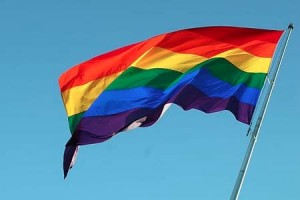 Russia, Ethiopia, Poland and others took the microphones at a meeting – webcast live from UN headquarters – to make clear that abortion and homosexuality are not international human rights.
Russia, Ethiopia, Poland and others took the microphones at a meeting – webcast live from UN headquarters – to make clear that abortion and homosexuality are not international human rights.
Diplomats especially chastised the UN’s human rights office for an obsession with lesbian, gay, bisexual and transgender (LGBT) rights.
Russia singled out a booklet produced by the Office of the High Commissioner for Human Rights (OHCHR), the epicenter for LGBT activism in the UN. The 60-page “Born Free and Equal” purports to give the “core legal obligations” regarding homosexuality, such as creating asylum categories for LGBT people and extending marriage to same-sex couples.
Implementing the recommendations “would inevitably lead to a violation of the rights of the child,” Russia said.
Navi Pillay came under particular disapproval. The amount of attention the head of the UN human rights office spends on sexual orientation “is disproportionately high,” Russia noted. “There are more topical issues in the world for us to deal with.”
Russia’s statement signaled that criticism of its law protecting children from homosexual propaganda has not softened its resolve. Some LGBT activists have called for boycotts of the upcoming Olympics in Sochi, Russia.
The subject of homosexuality is still delicate for some. Nigeria’s diplomat referred to it as “the issue of the rights of certain people with certain tendencies that are at variance” with their country’s law, traditions, religions and customs.
These are “matters of personal preference and lifestyle,” he said. “They should have no room in the United Nations discourse as protection of human rights is concerned.”
Ms. Pillay responded that the Universal Declaration of Human Rights and various treaties protect everyone, not “everyone but LGBT.”
Several diplomats apparently anticipated this. Speaking for African nations, Ethiopia emphasized their commitment to respect universally recognized human rights and freedoms for all.
But they are “concerned by the increasing trend” to “create new rights, concepts, and categories, and standards that are not recognized” in international agreements nor by all countries.
The courteous tone was a stark contrast to the harsh accusations of “hate” made against those who do not agree with LGBT advocates. The African group politely asked “for the full respect of national sovereignty and cultural values,” and for “the ability of all states to make choices in a democratic way for what is acceptable for them.”
Other countries confronted the language used to promote abortion. Poland outlined its initiatives improving areas of sexual and reproductive health, a notion defined by its law to respect pre-born babies’ right to life. In a subtle reference to heavy-handed tactics by pro-abortion governments, Poland said it does not “seek to influence decisions taken by other national governments” on these issues.
Several countries emphasized their positions apply across the board, to all UN work.
Poland “put on record” for this and all future meetings that it objects to any interpretation of sexual and reproductive rights or health services as including abortion on demand. These terms are not defined in any international agreement, it noted.
Anything in the UN’s overarching development agenda “should not in any way create an obligation on any party to consider abortion as a legitimate form of reproductive health or rights or commodities,” stated Malta, a member of the European Union.
While many at the UN focus on rights, the Holy See often explains the why. Abortion is never safe for the baby or mother, Archbishop Chullikatt said.
“Without life, all other rights are meaningless.”



